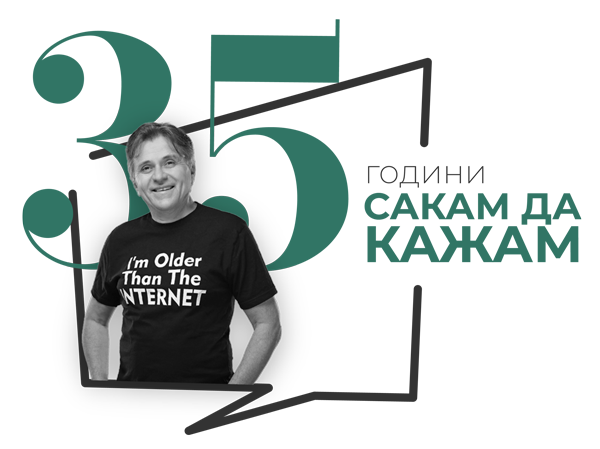1 The Bulgarian veto is no longer a problem. What’s disappointing is that the conditions set by Bulgaria for lifting the veto were accepted by the other 26 EU member states as a principle – disrespecting the Macedonian people, not recognizing the Macedonian language, including history as a principle for membership and meddling in the internal affairs of a sovereign state.
French President Emmanuel Macron, who holds the presidency of the Union, says they’re “close to an agreement which provides justice for Bulgaria’s demands and will continue to negotiate with the “North Macedonians”.
European Commissioner for Neighbourhood and Enlargement Olivér Várhelyi says that “the EU takes all Bulgarian concerns very seriously and they are now part of the negotiation process”.
So, the EU takes it seriously that Bulgaria wants Macedonians to become Bulgarians.
This European Union is not the European Community we dreamed of 30 years ago. This European Union is not the Union we all fell in love with 20 years ago, when we were young and naïve. This is a European Union in which Bulgarian values have prevailed, which tells us that if want to join it we should cease to exist.
2 European Commission President Ursula von der Leyen said on 23 June that “this is a great day for Europe” because Ukraine and Moldova were granted candidate status.
Expecting Putin to immediately stop his aggression against Ukraine because he’s attacked an EU member candidate, I’m trying to understand why this is such a great day for Europe. It’s not for us. Macedonia and Albania didn’t start the negotiations. Kosovo wasn’t granted visa liberalization. Bosnia and Herzegovina didn’t become an EU candidate, yet again. Serbia and Montenegro haven’t moved forward with the negotiations at all.
This is a European Union that can no longer be trusted because it doesn’t keep its word. By granting Ukraine candidate status because it’s under attack and at war, they’ve offended six Western Balkans countries, which despite all the fratricidal wars and devastation, have been kept waiting in the hallway for thirty years, constantly being promised a European future, but – “as long as you do this”, “as long as you don’t make your neighbour mad”, “as long as you change this law”, “as long as you don’t start a war”…
In the case of Macedonia – as long as you change your name. You have changed it? How wonderful. Your leaders are very brave, let’s give them plaques and take pictures with them. Now, the only thing you need to do is to change the name of your language. And then, if Bulgaria allows it, we can start the negotiations.
Is war the turning point? This is the Balkans after all. It’s difficult to maintain peace here. A war is something that we can make happen easily, if that’s the condition for joining the EU.
3 More importantly, what do we do at home now? How will we agree on what our state interest is? After this turning point in the European Union’s enlargement policy, Dimitar Kovachevski is expected to work on unifying all political factors and the public. Instead of first meeting Hristijan Mickoski – and saying, “we’re in a pickle, this is really important, much more important than me staying in power or you asking for early elections, so let’s come up with a solution how to proceed, since it’s obvious we can no longer play all our cards with the EU”, instead of looking for new allies, Kovachevski fell out with his friends. He said experts were in hysterics because of the French proposal.
We thought the state interest was more important than the Prime Minister’s vanity. He’s on a roll; he’ll turn his friends into enemies. As if we didn’t already have enough divisions in the country, the only thing missing was yet another one.
It’s perfectly normal that the public is upset. First, because Bulgaria cannot be trusted. In the last three years, Bulgaria has committed so many hostile acts towards us that we can’t trust them to stop that hostile behaviour in the future.
However, the thing that scares me more than Bulgaria is the incompetence of our political elites and state administration. We’re dealing with an enemy, so do we have the capacity as a state to deal with it? I don’t doubt the good will of the politicians as much as I’m afraid of their incompetence, self-absorption, selfishness and lack of political culture and dignity. Not only in the government, but also in the opposition. The whole opposition, not just VMRO-DPMNE.
These are the red lines of the government Kovachevski announced in Brussels – we won’t negotiate about the Macedonian language, our history can’t be part of the negotiating framework and once the negotiations have begun we’ll include Bulgarians in the Constitution, along with Croats and Montenegrins.
VMRO-DPMNE doesn’t have any other red lines, does it?
It’s about time the government and the opposition started dealing more and in a more honest manner with Macedonia than Bulgaria’s demands. And it’s about time we took things easy when it comes to the EU.
There’s no need for hysteria.
Translated by Nikola Gjelincheski
